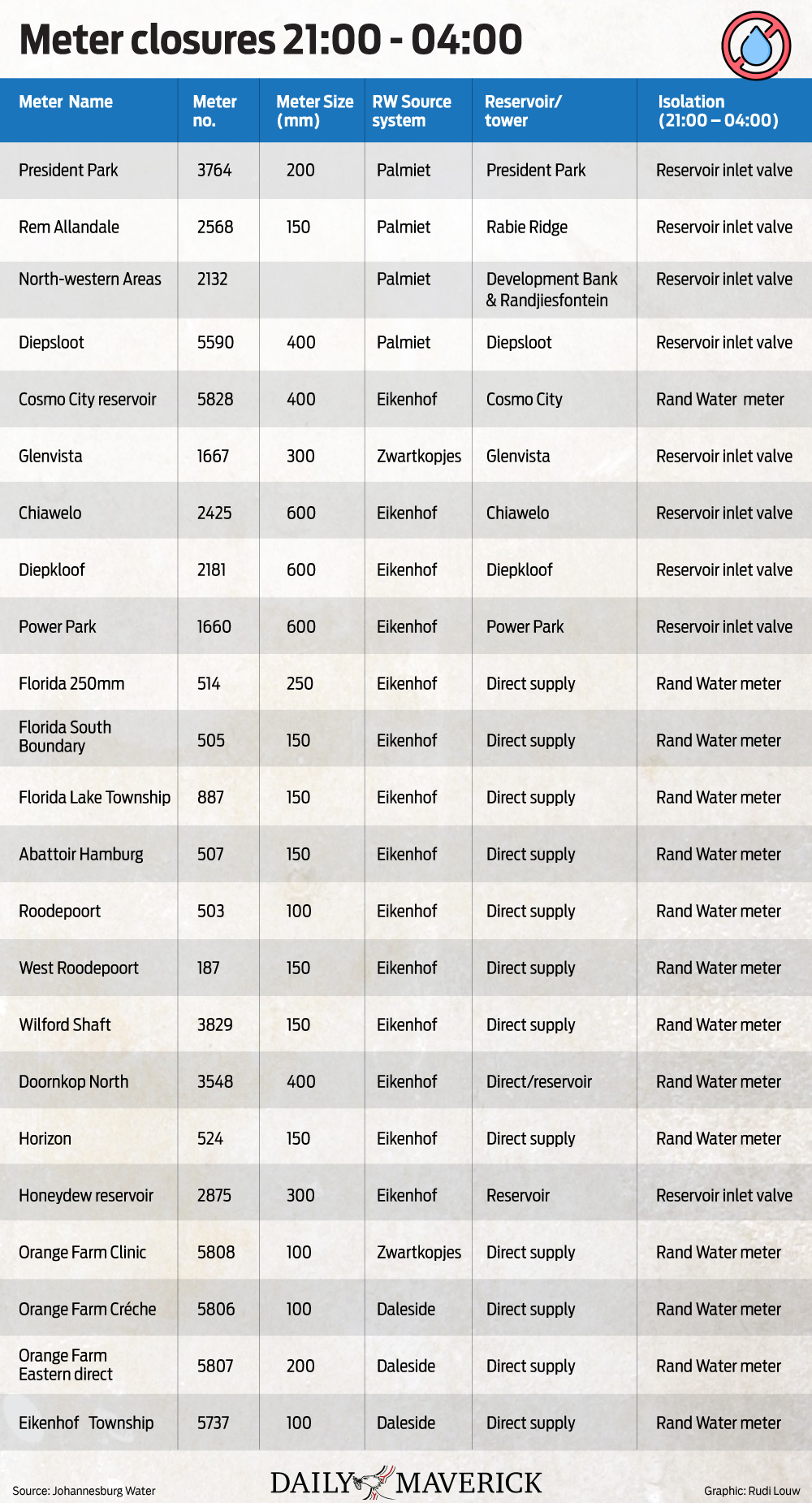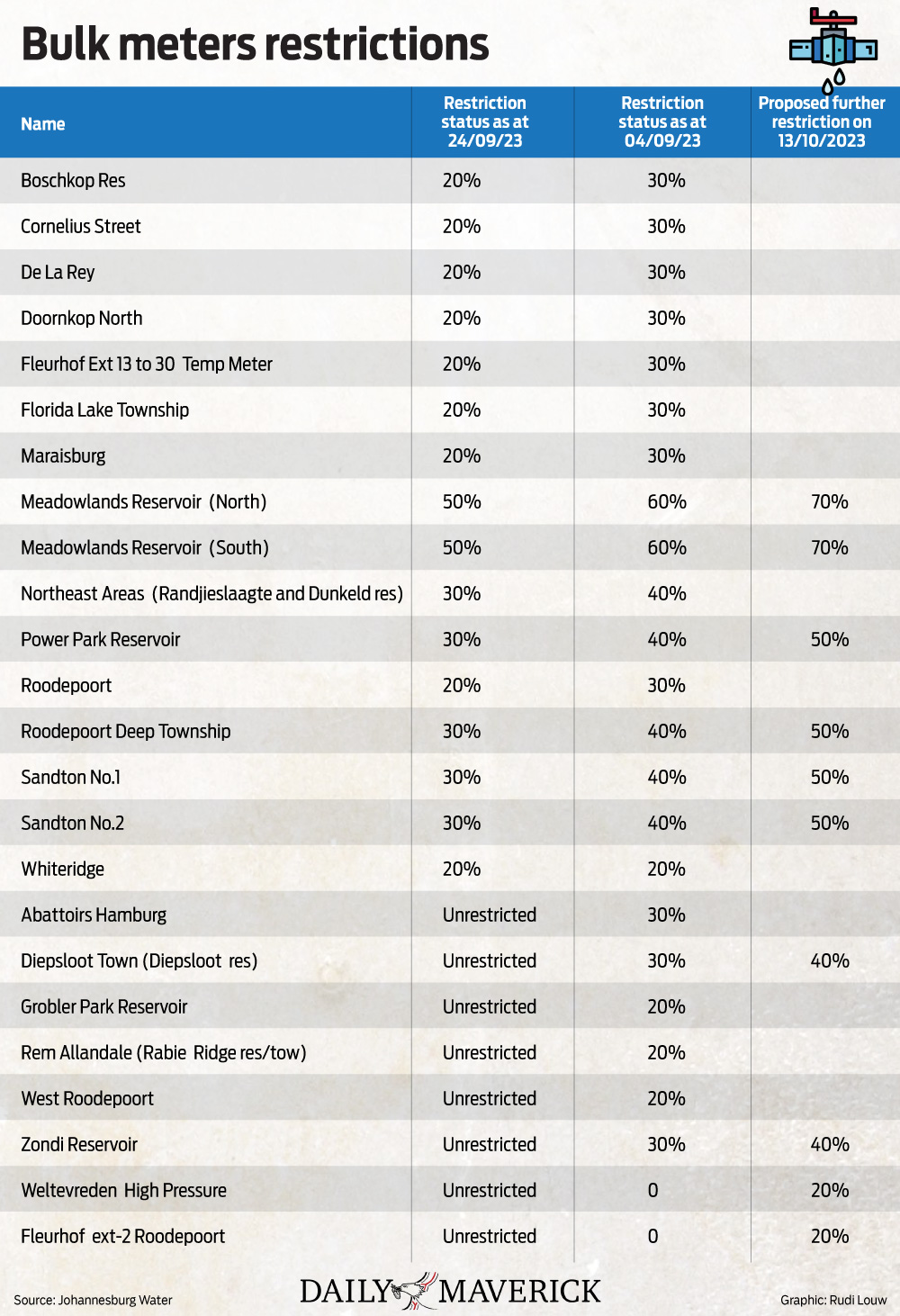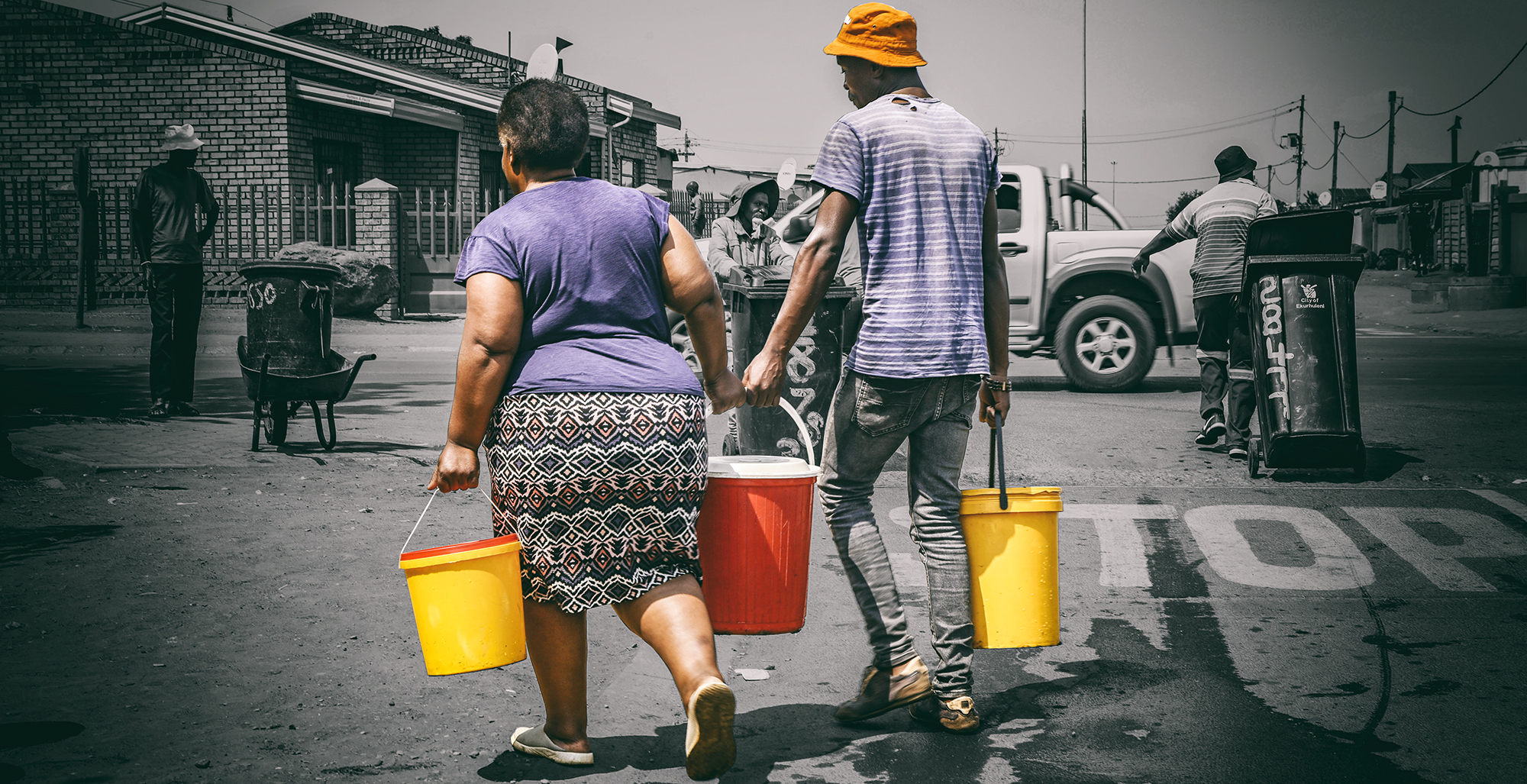According to a report tabled at the city council, government departments and state-owned enterprises (SOEs) owed Johannesburg Water R636-million by the end of 2022.
The figure is likely to go up in 2023 as the city struggles with lower revenues.
The chart shows that the Gauteng Department of Health owes the most, at R340-million, followed by the departments of housing and education. The passenger rail agency, Prasa, owed Johannesburg R72-million at the end of 2022, while Transnet owed R66-million.
The debts matter because Johannesburg Water, a utility run on private sector principles, has a R20-billion infrastructure backlog and is battling a series of water crises.
Two-thirds of the city was hit by water cuts last month, marking a year since Daily Maverick reported on Johannesburg’s Day Zero.
As of 13 October 2023, at least 18 reservoirs were at critical levels, while 40 reservoirs were being “throttled” between 9pm and 4am to restore water levels. This leaves many areas short of water at night.
“The reason it [the debt] matters is that Joburg Water is suffering from very limited funds. Pipe replacements must be done. Joburg Water is only replacing 12km to 15km a year; the minimum should be 100km a year,” says Nicole van Dyk, the DA spokesperson for infrastructure in the city.
“The utility is also struggling immensely for parts, vehicles and contractors. Leaks often continue for days.”
Gauteng Premier Panyaza Lesufi acknowledged the debt.
“The Gauteng provincial government has been pushing its departments and entities to honour their debt commitments. It’s unsustainable for one arm of government to owe another and be forced to resolve issues through the courts,” said Lesufi through his spokesperson, Sizwe Pamla.
“We need to establish a debt management agency with the Department of Cogta [Cooperative Governance and Traditional Affairs] so we can manage this debt,” said Lesufi.
The charts below show the areas affected by the latest crisis sparked when a hailstorm knocked out a Rand Water system, impacting on the city’s supply, and bulk meter restrictions.


Johannesburg Water chief Derrick Kgwale said the city’s water supply had been in crisis since late August, either from load shedding or storm impacts on the Rand Water system.
The cash-strapped city has begun stringent credit control on residents, stepping up traffic patrols, where outstanding utility bills are checked. In August, the Gauteng Division of the High Court in Johannesburg ordered the city to reconnect a nursing home. Toby Shapshak reported on the targeting of old-age homes here.
Driving on city streets is hazardous. Roads are dug up whenever a pipe bursts and are frequently not filled back in. Cars have driven into these holes as they are almost impossible to see at night, especially during load shedding.
“[Johannesburg Water] enforced operational performance standards of attending to a minimum of at least major bursts and three water-related jobs per team per day,” according to the latest report to the council.
Johannesburg Water says residents must report these faults, but reinstatements often take weeks or months – or sometimes never get done. According to the city, there are roughly 4,190 pipe bursts every month, averaging about 140 a day.
Read more in Daily Maverick: Johannesburg Water touts supply improvements yet no word on end to crisis for parched residents
Community groups have signed numerous petitions across Johannesburg as water cuts become normalised.
“The system’s definitely in crisis and every day there seems to be a new crisis,” said Dr Ferrial Adam of Outa’s Water Community Action Network.
She questioned whether damaging hailstorms were the reason reservoirs were empty.
"The system is highly vulnerable and the question must be asked: Have we gone beyond the tipping point?"
Johannesburg Water engineer Logan Munsamy said the 18 critically low reservoirs were at various levels, explaining that full recovery could take weeks. The city is “throttling” reservoirs (slowing supply to a trickle) – this is why many residents complain about low pressure, diminished supply and cuts at night.
“We cannot say when we will stop throttling,” said Munsamy, adding that “recovery is going in the right direction”.
By Wednesday, the South Hill Tower had recovered, said utility spokesperson Nombuso Shabalala.
However, Risana, Tulisa Park, Steeledale, Linmeyer, South Hill, The Hill, Oakdene, Rosettenville and the Klipriviersberg Estate have had dry taps for more than a month. Residents complained to Water and Sanitation Minister Sizwe Mchunu about these outages earlier this month.
Daily Maverick requested comment on the debt from the Johannesburg mayor’s office, the MMC for Finance, Dada Morero, and the Gauteng Department of Health. None was forthcoming despite promises from spokespeople. DM





 (Photo: Gallo Images / OJ Koloti)
(Photo: Gallo Images / OJ Koloti)